Related Research Articles
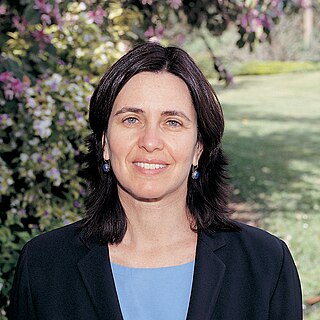
Shafrira Goldwasser is an Israeli-American computer scientist and winner of the Turing Award in 2012. She is the RSA Professor of Electrical Engineering and Computer Science at MIT, a professor of mathematical sciences at the Weizmann Institute of Science, Israel, co-founder and chief scientist of Duality Technologies and the director of the Simons Institute for the Theory of Computing at the University of California, Berkeley.

Barbara Liskov is an American computer scientist who has made pioneering contributions to programming languages and distributed computing. Her notable work includes the development of the Liskov substitution principle which describes the fundamental nature of data abstraction, and is used in type theory and in object-oriented programming. Her work was recognized with the 2008 Turing Award, the highest distinction in computer science.
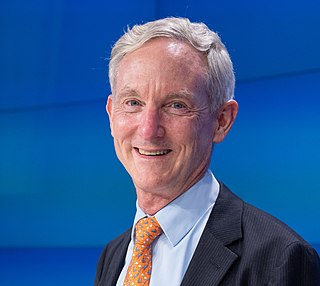
Frank Thomson "Tom" Leighton is the CEO of Akamai Technologies, the company he co-founded with the late Daniel Lewin in 1998. As one of the world's preeminent authorities on algorithms for network applications and cybersecurity, Dr. Leighton discovered a solution to free up web congestion using applied mathematics and distributed computing.

Sankar Kumar Pal is a computer scientist and president(&former director) of the Indian Statistical Institute, Kolkata. He is a computer scientist with an international reputation on fuzzy neural network, soft computing, and machine intelligence. He founded the Machine Intelligence Unit in 1993, and the Center for Soft Computing Research: A National Facility in 2004, both at the ISI. He is the founder president of the Indian National Academy of Engineering, Kolkata Chapter.
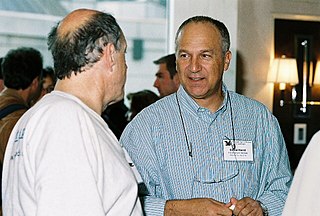
David Harel is a computer scientist, currently serving as President of the Israel Academy of Sciences and Humanities. He has been on the faculty of the Weizmann Institute of Science in Israel since 1980, and holds the William Sussman Professorial Chair of Mathematics. Born in London, England, he was Dean of the Faculty of Mathematics and Computer Science at the institute for seven years.

The President's Council of Advisors on Science and Technology (PCAST) is a council, chartered in each administration with a broad mandate to advise the president of the United States on science and technology. The current PCAST was established by Executive Order 13226 on September 30, 2001, by George W. Bush, was re-chartered by Barack Obama's April 21, 2010, Executive Order 13539, by Donald Trump's October 22, 2019, Executive Order 13895, and by Joe Biden's February 1, 2021, Executive Order 14007.
Ernst Adolph Guillemin was an American electrical engineer and computer scientist at the Massachusetts Institute of Technology who spent his career extending the art and science of linear network analysis and synthesis. His nephew Victor Guillemin is a math professor at MIT, his nephew Robert Charles Guillemin was a sidewalk artist, his great-niece Karen Guillemin is a biology professor at the University of Oregon, and his granddaughter Mary Elizabeth Meyerand is a Medical Physics Professor at the University of Wisconsin-Madison.
David Peleg is an Israeli computer scientist. He is a professor at the Weizmann Institute of Science, holding the Norman D. Cohen Professorial Chair of Computer Sciences, and the present dean of the Faculty of Mathematics and Computer Science in Weizmann Institute. His main research interests are algorithms, computer networks, and distributed computing. Many of his papers deal with a combination of all three.
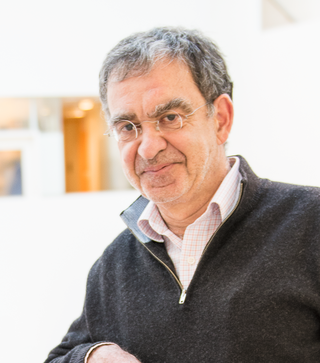
Tomaso Armando Poggio, is the Eugene McDermott professor in the Department of Brain and Cognitive Sciences, an investigator at the McGovern Institute for Brain Research, a member of the MIT Computer Science and Artificial Intelligence Laboratory (CSAIL) and director of both the Center for Biological and Computational Learning at MIT and the Center for Brains, Minds, and Machines, a multi-institutional collaboration headquartered at the McGovern Institute since 2013.
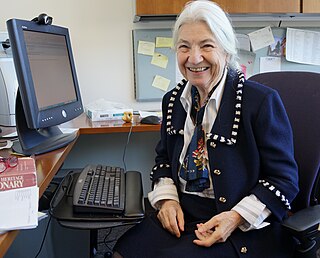
Ruzena Bajcsy is an American engineer and computer scientist who specializes in robotics. She is professor of electrical engineering and computer science at the University of California, Berkeley, where she is also director emerita of CITRIS.

Marie-Elisabeth Lucienne Paté-Cornell,, is a Stanford University Professor in the Department of Management Science and Engineering and was the Founding Chair of the Department.
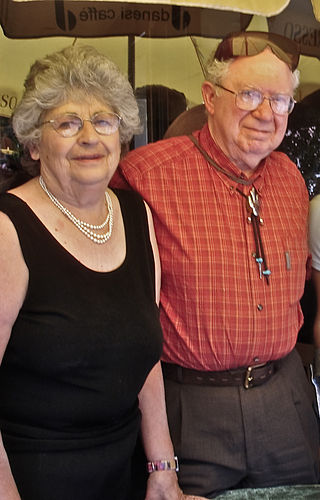
Thelma Estrin was an American computer scientist and engineer who did pioneering work in the fields of expert systems and biomedical engineering. Estrin was one of the first to apply computer technology to healthcare and medical research. In 1954, Estrin helped to design the Weizmann Automatic Computer, or WEIZAC, the first computer in Israel and the Middle East, a moment marked as an IEEE Milestone in Electrical and Computer Engineering. She was professor emerita in the Department of Computer Science, University of California at Los Angeles (UCLA).
Stephanie Forrest is an American computer scientist and director of the Biodesign Center for Biocomputing, Security and Society at the Biodesign Institute at Arizona State University. She was previously Distinguished Professor of Computer Science at the University of New Mexico in Albuquerque. She is best known for her work in adaptive systems, including genetic algorithms, computational immunology, biological modeling, automated software repair, and computer security.

Demetri Terzopoulos is an Academy Award winning Greek-Canadian-American computer scientist, university professor, author, and entrepreneur. He is best known for pioneering the physics-based approach to computer graphics and vision that has helped unify these two fields, and for introducing Deformable Models, among them the seminal Active Contour Models, to graphics, vision, medical imaging, and other domains; he is also known for his artificial life research on realistic animal and human modeling and simulation, encompassing musculoskeletal biomechanics, neuromuscular and neuro-sensorimotor control, and artificial intelligence. He has been a professor of computer science, electrical and computer engineering, and mathematics, and has taught courses in computer graphics, computer vision, scientific computing, and artificial intelligence/life at three universities. He is currently a Distinguished Professor and Chancellor's Professor of Computer Science in the Henry Samueli School of Engineering and Applied Science at the University of California, Los Angeles, where he directs the UCLA Computer Graphics & Vision Laboratory.

Bonnie Anne Berger is an American mathematician and computer scientist, who works as the Simons professor of mathematics and professor of electrical engineering and computer science at the Massachusetts Institute of Technology. Her research interests are in algorithms, bioinformatics and computational molecular biology.
Rebecca Richards-Kortum is an American bioengineer and the Malcolm Gillis University Professor at Rice University. She is a professor in the departments of Bioengineering and Electrical and Computer Engineering, and she is the Director of Rice 360°: Institute for Global Health, and the Founder of Beyond Traditional Borders. She is the Director of the Institute of Biosciences and Bioengineering, and serves as the advisor to the Provost on health-related research.
Maryellen L. Giger, PhD currently holds the title of A.N. Pritzker Distinguished Service Professor of Radiology and is a member of the Committee on Medical Physics at the University of Chicago. She is also the vice-chair of Radiology and the former director of the CAMPEP-accredited Graduate Programs in Medical Physics/chair of the Committee on Medical Physics at the university. Giger also co-founded Quantitative Insights, Inc., whose product QuantX is the first FDA-cleared, machine-learning driven system to aid in cancer diagnosis. In 2019, QuantX was named one of TIME magazine's inventions of the year.

Yonina C. Eldar is an Israeli professor of electrical engineering at the Weizmann Institute of Science, known for her pioneering work on sub-Nyquist sampling.

David Joshua Tannor is a theoretical chemist, who is the Hermann Mayer Professorial Chair in the Department of Chemical Physics at the Weizmann Institute of Science.
References
- 1 2 "Tamar Flash", Member directory, American Academy of Arts & Sciences, retrieved 2022-09-08
- 1 2 3 4 "T. Flash", IEEE Xplore, IEEE, retrieved 2022-09-08
- 1 2 3 Curriculum vitae (PDF), 2016, retrieved 2022-09-08